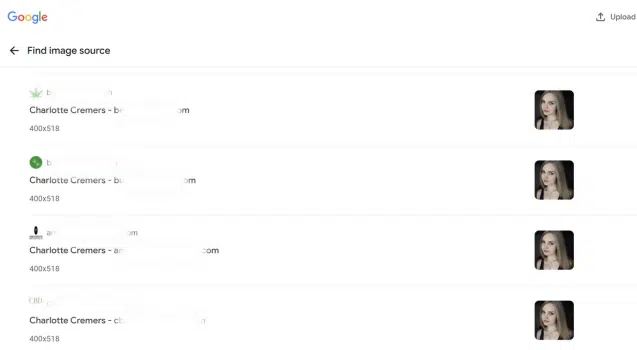Last year something odd happened.
I was working on a project for a client and needed some expert insight from a sports science expert.
I put out a request on Response Source, a popular platform where journalists and PRs seek out expert comments to add to their stories and campaigns (a bit like a premium version of HARO).
The idea is that this is a win-win for both parties. Those working on the story or campaign get access to valuable expert insight, and the experts get a plug (or, better yet, a link) to their business.
I hoped I would get some comments from a nutritionist, coach, personal trainer, or someone with similar qualifications.
Often underqualified people would send quotes, but getting someone overqualified is rare. This is why it was a surprise when one of the responses was from a doctor, a British general practitioner (GP) working in London.
The responses to the question themselves about how athletes cope in high temperatures were unremarkable:
“Risks of Heat Stress Disorders among players High temperature invokes physiological responses in the body that hinder the players’ health and performance. The players may suffer from the heat-stress disorder. The condition is characterized by heat cramps, heat exhaustion and heat strokes.”
Neither too vague nor too salesy, and would’ve fit quite nicely in the campaign – an adequate pitch, in other words.
I thought it was quite odd that a GP had taken the time to respond, though. Perhaps she was trying to promote a private practice?
I clicked the link in her profile and it did not lead to a home page for a private GP practice.
Instead, it was the About Us page of an ecommerce website selling… sex toys.

Doctor who?
A quick Google search led me to her name on half a dozen websites selling everything from CBD oils to vapes, gummies and vitamins.
I did a reverse image search of the (suspiciously AI-looking) headshot she had supplied and it came up on a website exposing female romance scammers and the aforementioned CBD websites.
In all likelihood, the image had been taken from someone’s Tumblr account once upon a time and was now being used by the dregs of the internet for fraud.

In the UK, all practicing GPs must be on the General Medical Council’s GP Registry. It is publicly searchable, and her name was not listed.
Impersonating a doctor is not the first thing that comes to mind as a winning SEO strategy, so why is this happening?
First and foremost: links. They hold significant value in SEO. This is what keeps digital PR professionals like me working.
They can be especially important trust signals for “Your Money or Your Life” (YMYL) websites, including those selling, for example, vitamins or CBD oils.
And unfortunately, in the very limited scope of link acquisition, it seems to be working.
The fake doctor has landed a handful of mentions and links in some national British publications talking about, among other things, leukemia.


Get the daily newsletter search marketers rely on.
The ethics of E-E-A-T for YMYL
This entirely fictional GP is now advising readers on how they can check themselves for early signs of leukemia.
This strikes me as a genuine YMYL concern. Morally, it’s not a good idea to advise leukemia patients unless you’re medically trained.
“High E-A-T medical advice should be written or produced by people or organizations with appropriate medical expertise or accreditation. High E-A-T medical advice or information should be written or produced in a professional style and should be edited, reviewed, and updated on a regular basis.”
You see, this isn’t just about links, it is also about expertise, experience, authority and trust..
When it comes to YMYL sites, Google expects the very highest standard of E-E-A-T.
You want it to be clear on an About Us page who your experts are, why they are an expert and what part they play within the company, brand or website.
If all this is present on the page, then offsite trust signals are the next obvious step.
If you have a medical expert on your website, one who is also quoted in multiple publications and other reputable websites, this is one of the best things you can do to build the E-E-A-T required to rank your YMYL website.
Google’s Search Quality Rater Guidelines state that:
“For YMYL informational topics, the reputation of a website or content creator should be judged by what experts in the field have to say. Recommendations from expert sources, such as professional societies, are strong evidence of a very positive reputation.”
Google, ironically, is even more explicit about this in its 2019 paper on how Google fights disinformation which states:
“For these “YMYL” pages, we assume that users expect us to operate with our strictest standards of trustworthiness and safety. As such, where our algorithms detect that a user’s query relates to a “YMYL” topic, we will give more weight in our ranking systems to factors like our understanding of the authoritativeness, expertise, or trustworthiness of the pages we present in response.”
I reached out to the journalist Mason Quah who wrote the story on leukemia, to find out more about what happened and how a fake doctor made national news:
“Almost all of the contacts we used were via email exclusively. I was told to use response source, or a tool similar, to find leads. That is the most likely source.
I’m entirely unsurprised that an AI could fill out the responses since most of the time we knew what our story was going to be and just needed a rubber stamp from somebody who put doctor before their name.”
Fake doctor, meet fake patient
It’s not just fake experts causing problems.
The first “E” in E-E-A-T – experience also has its share of scammers.
Google now recognizes that you don’t need to be an expert in something if you have firsthand experience and understand that this may be valuable.
Although, I don’t suspect this was the motivation behind the deeply bleak story of Insider Journalist Julia Pugachevsky being tricked into interviewing an AI-generated source. Not a fake doctor, but a fake cancer patient.

This was perhaps the most immoral example of black hat link building, with little thought given to anything beyond that desired follow link.
Pugachesky went on to write about her experience where we learn that the source contacted her via HARO. She explained:
“In exchange for her story, she hoped I would mention her role as the founder of an online-gaming page. Ideally, I could link to them, too.”
Once Pugachevsky realized she had been scammed, she contacted HARO, which assured her that it had already banned the account.
As for my fake GP, though, it would seem she is still out there. At the time of writing, she was last quoted in the press three weeks ago.
Unsurprisingly for Pugachesky, the trust has been damaged.
Just as Google runs on trust signals, trust between digital PRs and journalists is crucial for digital PR to take place on platforms such as HARO and Response Source.
Pugachesky ended her piece by explaining what she would do to avoid falling victim to a similar scheme in future:
“I put together a document about my experience for the entire Insider newsroom. We’re sharpening our protocols and becoming more vigilant than ever about researching sources in advance, insisting on phone interviews, and running email communications through a text checker.”
Those of us who contact Insider on behalf of our clients may now find that where before an email interview would have sufficed, that same journalist may now want to speak to a source directly on the phone to ensure they’ve not been AI-generated.
What can SEO and digital PR professionals do about this?
It’s important for us in the industry to call out this bad practice for what it is. This isn’t “grey hat SEO,” but outright fraud.
It paints our industry as not just shady but rotten to the core. After all, do we really want SEO to be associated with impersonating cancer victims?
If you’re outsourcing your link building effort, make sure you know exactly what those you’re paying to build links are doing to earn them.
Unfortunately, when these tactics slip through the net, they may have short-term benefits, but we’ve been here before.
It’s been over a decade ago now since Google launched the Penguin algorithm and took a firm stance on manipulative link building practices.
According to Google’s own data, it impacted around 3% of all search results. So we know Google is more than willing to penalize inappropriate behavior when uncovered and to do this en masse.
As Google states itself:
“Tackling the propagation of false or misleading information is core to Google’s mission and to ensuring our products remain useful to the billions of users and partners who utilize our services every day.
“While we have always fought against malicious actors’ efforts to manipulate our systems and deceive our users, it’s never been more important to thwart them and to ensure we provide our users with information worthy of the trust they have in our services.”
In this instance, it makes far more sense to clean up our act as an industry instead of waiting for the wrath of a Penguin 2.0-style devastating Google update.
What should publications be doing?
As for news publications and the journalists who write for them, there may be a case for ongoing education as AI evolves. I’ll leave you with this quote from Quah:
“There is a lot of value in teaching people how to conduct research that dodges AI bots or whatever the next innovation is to occupy the top slot of most Google search queries.
“I’d say it’s something you need to actively keep on top of, it’s like how there’s a half life of medical knowledge, a doctor doesn’t just keep what they know from school but spends most of their career continuing to follow the field and staying up to date on new techniques and methods. Journalists need to keep retraining themselves as the field changes.”
Opinions expressed in this article are those of the guest author and not necessarily Search Engine Land. Staff authors are listed here.
